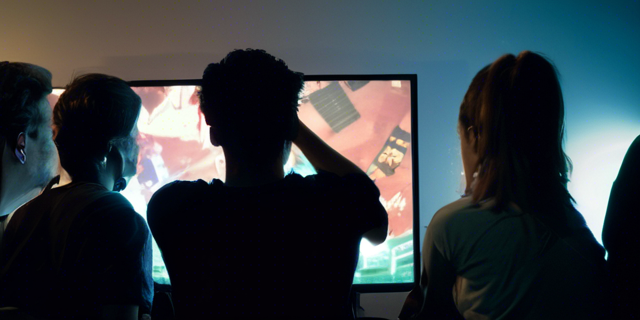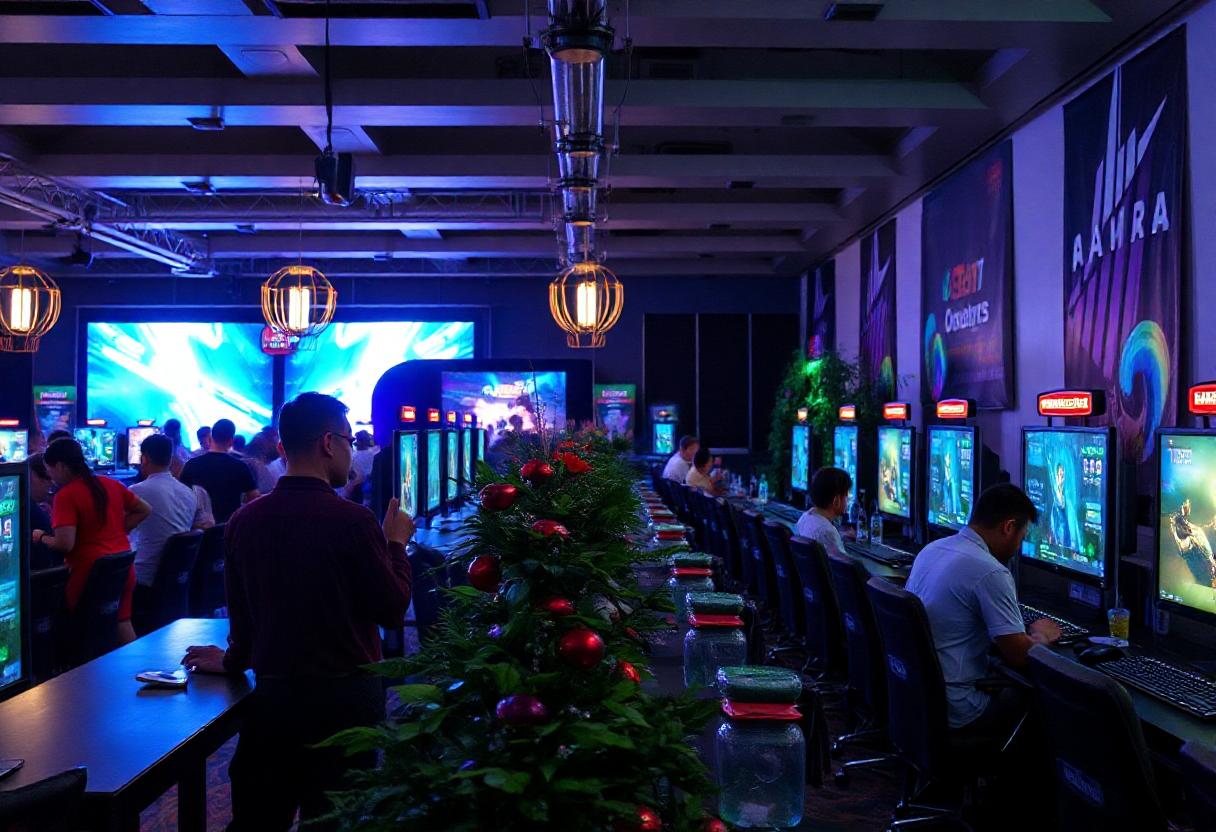Game community building is a crucial aspect of fostering a successful game. It’s about more than just marketing; it involves creating a space where players feel connected and valued. A thriving community acts as the heartbeat of your game, fostering friendships and encouraging collaboration among players. When gamers feel like they belong, they are more likely to remain engaged, offer constructive feedback, and promote your game within their personal networks. This sense of belonging not only enhances their experience but also drives the game’s popularity.
In this blog, we will explore effective strategies for gaming community building, offering practical tips to help developers and marketers create an inclusive and dynamic environment that keeps players coming back for more.
The Importance of Gaming Community Management
Before diving into the strategies, let’s understand why gaming community management is essential. A well-managed community serves multiple purposes:
- Enhances Player Experience: Players feel more connected to the game and each other, leading to a fulfilling experience.
- Harbors Retention: Players who engage with the community are less likely to abandon the game.
- Provides Feedback: Players offer valuable insights that can improve gameplay and overall satisfaction.
- Encourages Content Creation: A passionate community often generates user-created content, from fan art to gameplay videos, boosting your game’s visibility.

Key Strategies for Successful Community Building
1. Define Your Community’s Identity
The first step in gaming community building is defining its identity. Establishing a clear purpose helps attract like-minded individuals who share a passion for your game.
Consider what your community stands for and what you want to achieve through community building. This could range from fostering competition among players to promoting creativity through fan art and shared experiences. Understanding the core interests of your audience allows you to tailor discussions and content that resonate with them.
For instance, if your game is a competitive shooter, creating spaces for players to share strategies and form teams may be beneficial. Conversely, if your game is a casual puzzle experience, focusing on tips, tricks, and community challenges can bring players together in a fun, engaging way. Additionally, consider the themes and values you want your community to embody, such as inclusivity, fun, or skill improvement, as this will guide your messaging and branding in gaming community building.
2. Choose the Right Platforms
Choosing the right platforms for engagement is equally critical in gaming community building. Different platforms serve unique purposes and cater to various interactive experiences.
Gaming forums are excellent for in-depth discussions and support, allowing players to dive deep into strategies and game mechanics. Social media platforms like Twitter and Instagram are great for real-time engagement and announcements, helping you keep the community informed and excited about new updates or events.
Meanwhile, Discord has become an immovable pillar for many gaming communities, providing a space for instant communication, be it text or voice. It fosters closer connections among players, allowing them to build friendships and coordinate play sessions. Platforms like Reddit can also serve as informal spaces where players can share experiences, feedback, and fan content in a more casual setting.
Importantly, consider integrating your platforms for a cohesive experience. For example, use Discord for real-time chats while sharing highlights and announcements on social media to drive traffic back to your community. This synergy can enhance overall engagement and participation, further enriching your gaming community building efforts.
3. Create an Inclusive Environment
Fostering an inclusive atmosphere is paramount to successful gaming community building. To create a welcoming environment, establish clear community guidelines that promote respect and discourage toxic behavior.
These rules should be visible and reinforced regularly to create a sense of accountability among members. Welcoming new members is another essential aspect; a simple greeting can go a long way in making newcomers feel comfortable and valued.
Encouraging participation from all members fosters a sense of belonging and helps maintain positive community culture. Create opportunities for players to introduce themselves and share their gaming experiences, which could include dedicated introduction threads or special events that spotlight new members.
Moreover, consider implementing mentorship programs where veteran players can guide newcomers. This not only helps new members acclimate but also builds connections between different community members, strengthening your gaming community building efforts.
4. Foster Engagement Through Content
Engagement is the fuel of the beating heart of game community building. Regular interaction with players helps maintain excitement and encourages ongoing participation.
One effective way to keep players engaged is by providing regular updates about game developments, upcoming features, and community events. Sharing behind-the-scenes content, such as development insights or artwork, not only keeps the community informed but also fosters a deeper connection between players and the game itself.
Highlighting community contributions, whether it’s fan art, gameplay videos, or written guides, showcases player creativity and encourages others to participate. Additionally, consider creating themed content or challenges that resonate with your community’s interests, such as fan art competitions or gameplay challenges based on game mechanics.

5. Organise Events and Activities
Hosting events and activities can significantly boost engagement within your community building efforts. Consider organising tournaments, game nights, or community challenges to bring players together and create memorable experiences.
These events foster camaraderie among players, allowing them to connect over shared interests and engage more deeply with your game. When players have the opportunity to participate in events, they are more likely to form lasting friendships and connections within the community.
Furthermore, create special events around major game updates or anniversaries. This not only keeps the community excited but also creates buzz around your game. Incentivising participation with in-game rewards, exclusive items, or recognition can further motivate players to engage and deepen their connection to the community.
6. Listen and Respond to Your Community
Active listening is crucial in gaming community building. Your players have valuable insights, so make sure you’re attentive to their feedback.
Regularly solicit player input through polls, surveys, and open discussions. This not only shows that you value their opinions but also helps you make informed decisions that enhance the gaming experience.
When issues arise, address them promptly and transparently. Open communication about challenges and actively working toward solutions builds trust within the community. By acknowledging concerns and demonstrating a willingness to adapt, you create an environment where players feel empowered to share their thoughts and ideas.
Additionally, consider creating a feedback loop where players can see how their suggestions have influenced the game or community initiatives. This acknowledgment reinforces their value and encourages continued participation in your gaming community building efforts.
7. Navigating Conflicts
Conflict is inevitable in any community, but how you handle it can make a significant difference in gaming community building. Establishing clear rules helps prevent conflicts and establishes expectations for behavior.
Make sure everyone knows the rules, which helps prevent misunderstandings. When conflicts arise, address them quickly and fairly. Open communication helps resolve issues and prevents escalation. Encourage players to express their opinions respectfully, and remind them of the community guidelines during disagreements to foster resolution through dialogue.
Consider designating community moderators or ambassadors who can help mediate disputes and maintain a positive environment. Empowering trusted members to assist with conflict resolution ensures that players feel supported and valued, ultimately strengthening your gaming community building efforts.
Conclusion
Effective gaming community building is essential for fostering player engagement and loyalty. By following these best practices for gaming community management, you can create a thriving community that enhances the player experience and drives the success of your game.
From defining your community’s purpose to engaging with players on their preferred platforms, the commitment to gaming community building will pay off in the long run. Prioritising clear communication, celebrating player contributions, and actively listening to feedback will help you cultivate a loyal fanbase that supports your game and advocates for it passionately.
Investing in your gaming community isn’t just a strategy; it’s a way to create lasting connections that enrich the gaming experience for everyone involved. So roll up your sleeves, dive into community management, and watch your gaming community building efforts flourish!
At The Game Marketer, we know that a strong community is the backbone of any successful game. Our services are designed to help you build genuine connections with players through effective marketing strategies, engaging content, and community management. We’re passionate about turning your vision into reality, ensuring that your game not only reaches its audience but thrives within a vibrant community. Let’s join forces to create a welcoming space where players feel valued and excited to connect.



